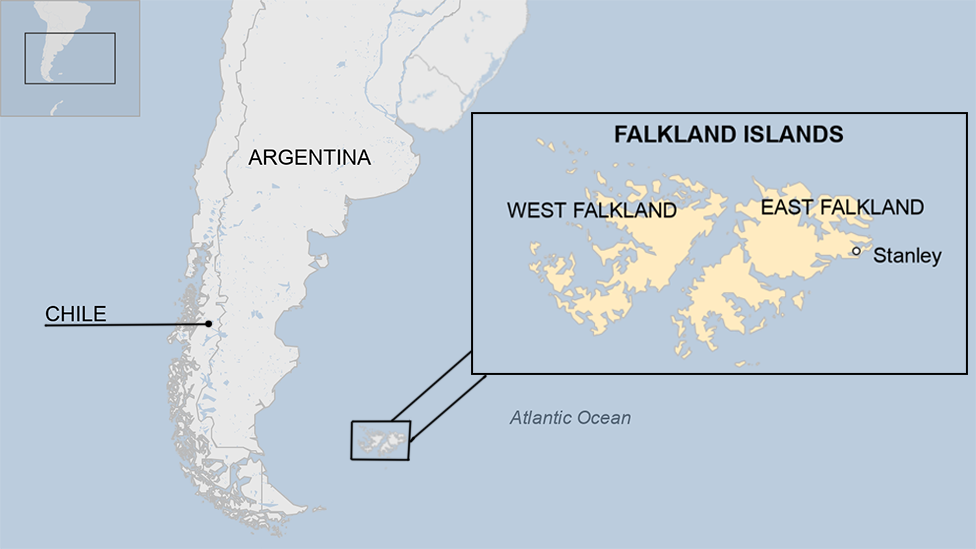UK minister Fallon reassures Falklands over defence
- Published
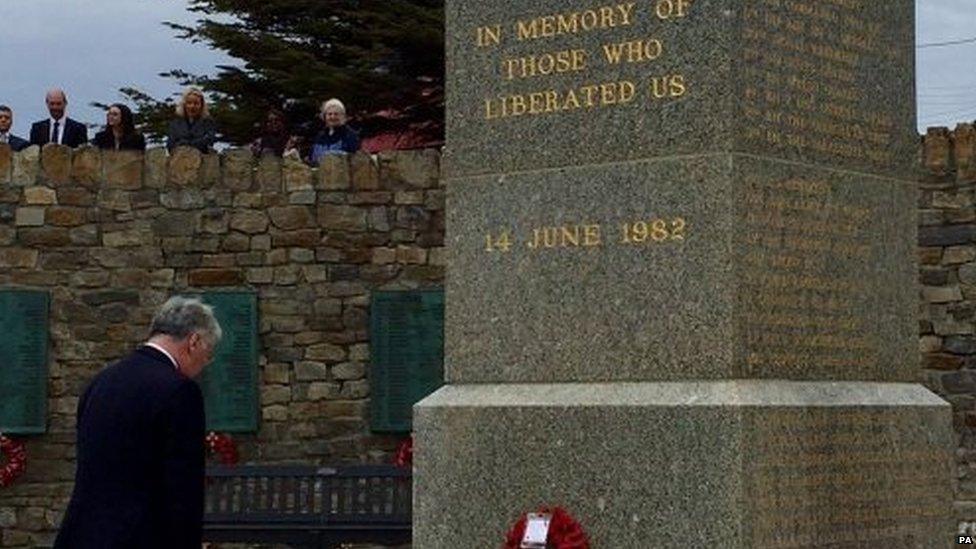
Michael Fallon, the first UK defence secretary to visit for 14 years, paid tribute to British casualties in the Falklands War
Getting to the Falkland Islands isn't cheap, quick or fun.
The 8,000-mile (12,875 km) journey from the UK takes the best part of 24 hours with a brief refuelling stopover in Ascension Island - another remote British outpost plonked in the middle of the Atlantic.
A return trip to the Falklands from RAF Brize Norton in Oxfordshire can cost around £2,000 ($2,875).
On arrival, at the other side of the world it can, at first, seem reassuringly familiar, but it is very different.
The landscape is a bit like the highlands of Scotland, but with fewer signs of human life. The 3,000 people who call the Falklands home are significantly outnumbered by sheep and penguins.
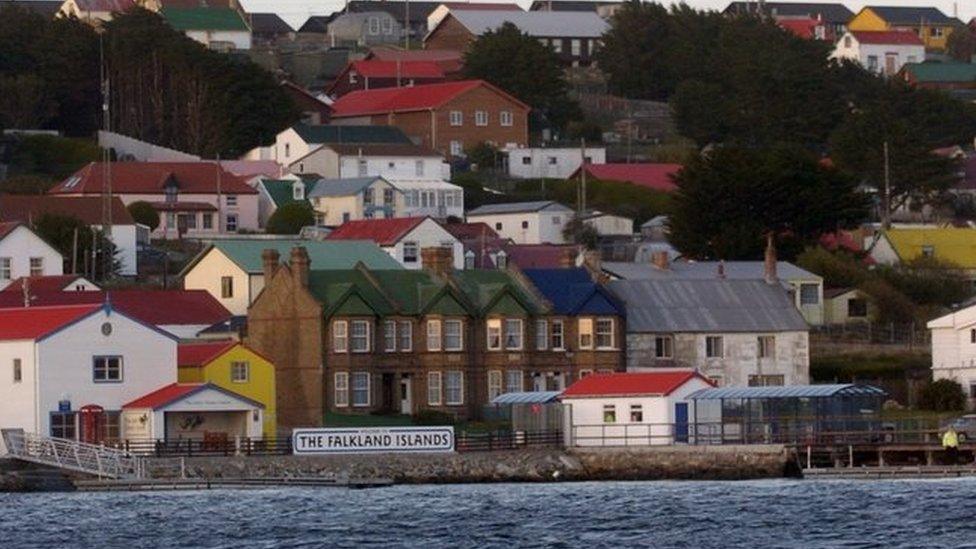
The Falklands is home to the second largest British military base outside the UK
Most live in Stanley with its brightly coloured roofs and old-fashioned, red post and telephone boxes.
February is the height of summer, yet you can experience bright sunlight, heavy rain and hail stones all in one day. Trees appear to be rarer than orchids. Few survive the battering winds that blow off the South Atlantic. The wind can wear a newcomer down.
'Nervousness'
None of this stopped the Defence Secretary Michael Fallon from wanting to visit. His trip was long planned. But he would have to overcome nervousness inside a Foreign Office that, by just setting foot on the islands, he would inflame tensions with Argentina.
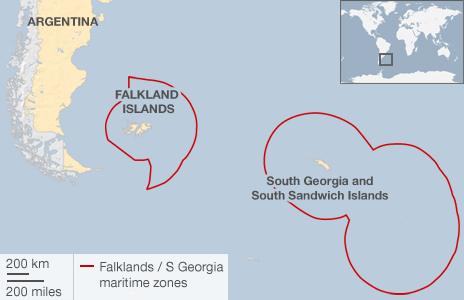
The Falkland Islands and South Georgia and South Sandwich Islands are British Overseas Territories
He's the first British defence secretary to visit the Falklands in 14 years.
He had good reason to travel all this way. There are 1,200 British military personnel on the Falklands.
It's the second largest military base outside the UK. Four RAF Typhoon jets are permanently stationed here to patrol the skies - just part of the increased UK defence posture since the 1982 Argentine invasion.
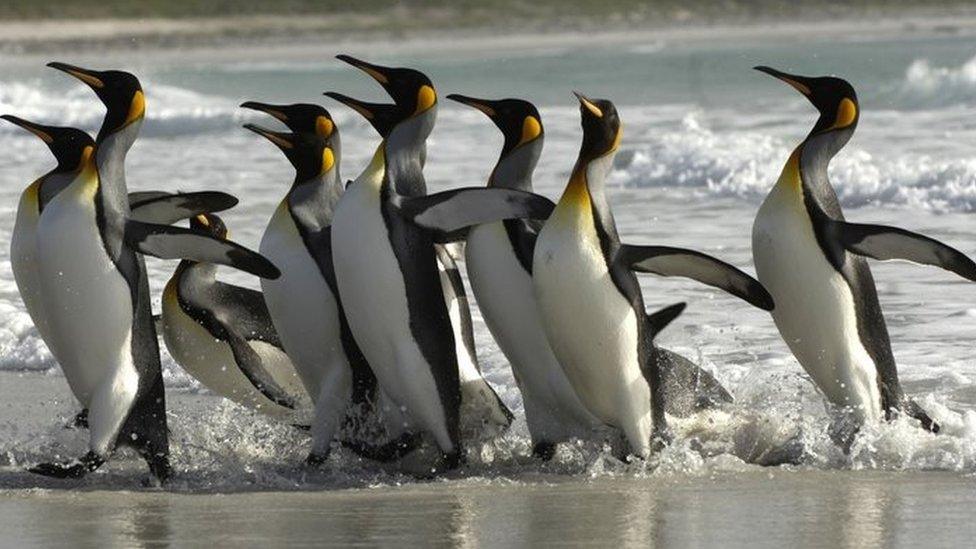
Penguins far outnumber the 3,000 human residents of the Falklands
Defence commitment
Mr Fallon came with a message to please the locals. He said he wanted to underline the UK's "long-term commitment to the Falklands and its defences".
Last year he announced the Ministry of Defence would be investing £180 million pounds over the next decade in upgrading military infrastructure on the islands - mostly spent on logistics and accommodation rather than military hardware.
These are just part of the changes to life on the Falklands.
The sale of fishing rights has raised revenue and boosted the local economy. Squid is the big catch.
Tourism is on the rise with passengers from big cruise ships making it a regular stopover. More than 60,000 visitors travel to the Falklands every year, and about 10% of them are from Argentina.
But hopes of a striking it rich from oil have had to be put on hold with the slump in the global market. This week the main company carrying out exploration suspended its operations.

The fiery Cristina Kirchner is no longer president of Argentina
Relations with Argentina though remain a major obstacle. There's still no direct trade or flights.
There are hopes of better relations. The fiery Cristina Kirchner has been replaced by the more moderate President Mauricio Macri. The war of words has been dialled down.
'Door open to new relationship'
Michael Fallon was very careful not to antagonise Argentina. As well as visiting the cemetery of some of the 255 British servicemen who lost their lives liberating the Falklands, he also paid his respects to the Argentine dead at their cemetery near Darwin.
"The door is open" he said to a "new relationship".
But that will be hard given that Argentina is not giving up its claim to the islands. Sovereignty, Mr Fallon said, was settled more than 30 years ago and is "not going to be raised again".
Instead of attacking Argentina's claim he tried to turn his fire instead on Labour leader Jeremy Corbyn, who has talked of the need for a dialogue about the islands' future. Mr Fallon said that made the Labour leader a "greater threat" to the Falklands than Argentina.
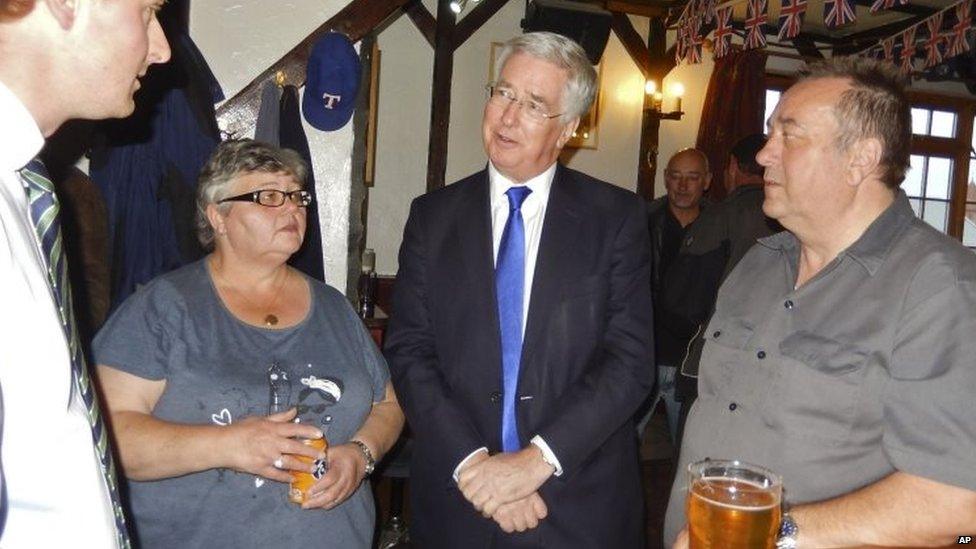
Mr Fallon met politicians and other Falklanders during his visit
That's not how they view it in the Victory Pub in Stanley, decked out in Union flags. The locals are surprisingly polite about Mr Corbyn, saying they hope he visits the islands and changes his mind.
Their anger is still directed at Argentina. As they drink their pints they pour cold water on ending the dispute.
One tells me there's simply no point in talking as "there really isn't anything to offer". Another predicts relations will "continue to be cold for a very long time to come" before adding his insight "we're more British than the British".
That might be true but the islanders are also fiercely independent. It's part of what comes from living on a small remote outpost on the other side of the world.
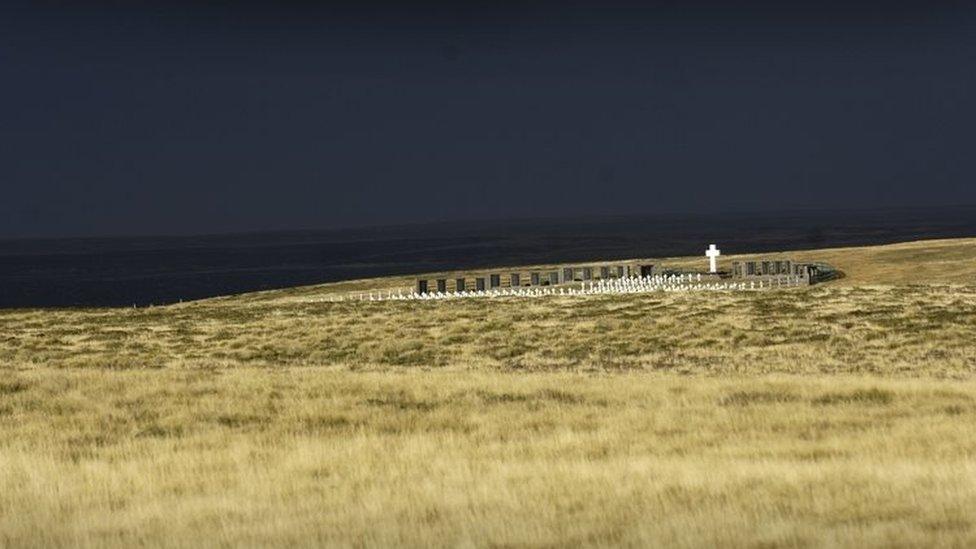
Mr Fallon also paid his respects to the Argentine war dead at their cemetery near Darwin
- Published12 March 2013
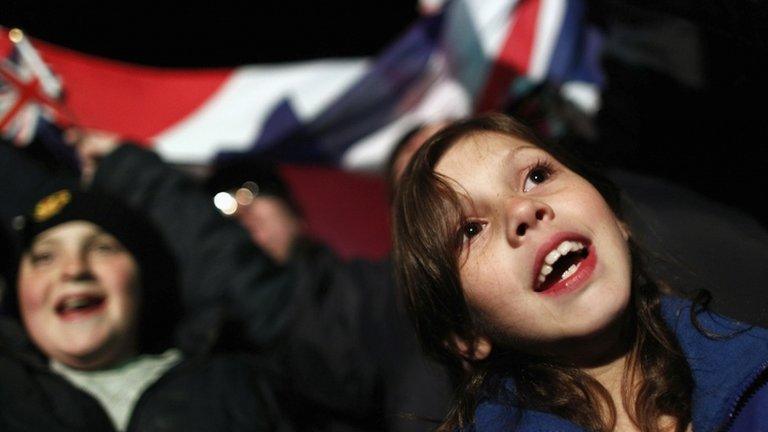
- Published16 February 2012
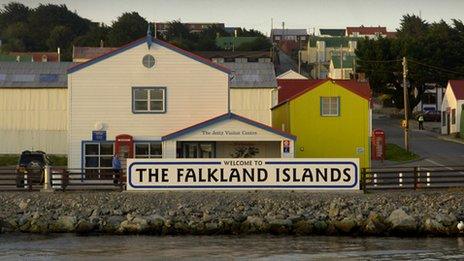
- Published7 September 2023
